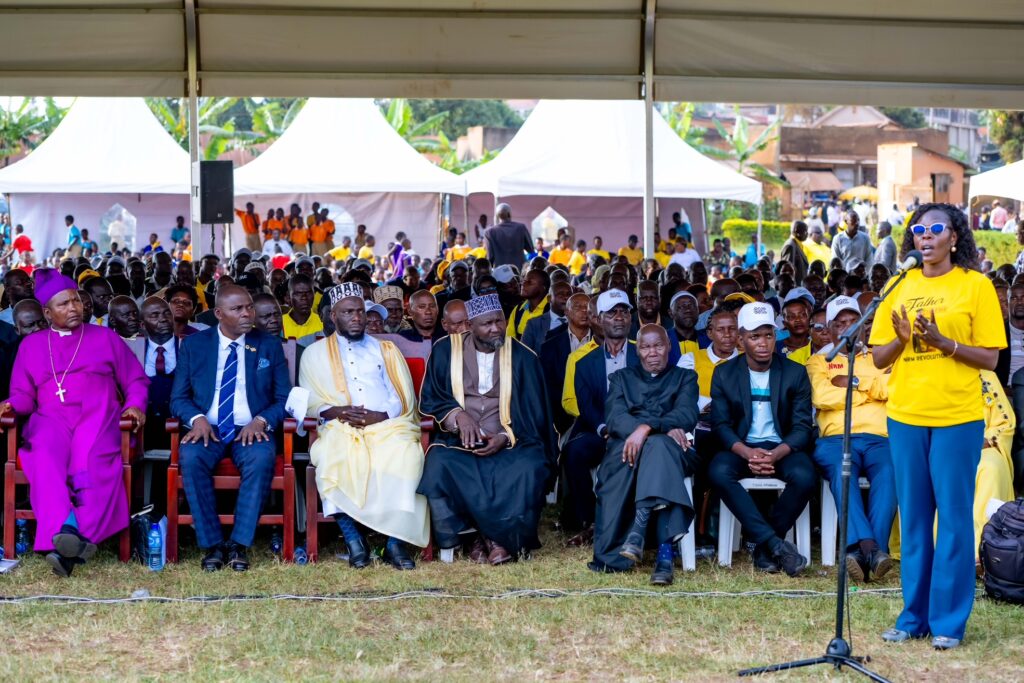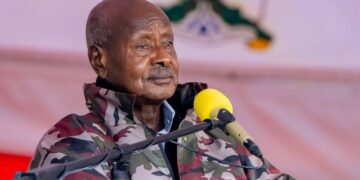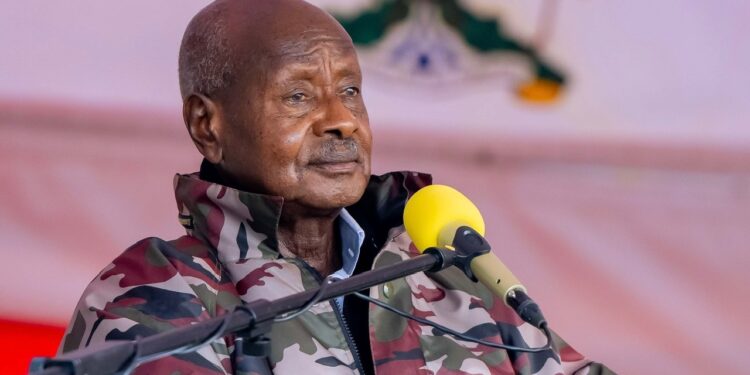President Yoweri Kaguta Museveni has issued a stern warning to media houses that fail to publicise the government’s flagship Parish Development Model (PDM) programme, saying they risk losing their operating licenses if they do not comply with national priorities.
Speaking to journalists from the Greater Mukono region at State Lodge Nakasero on Sunday, President Museveni emphasised that public awareness and proper understanding of government wealth creation initiatives are essential for the success of programmes like PDM.
His remarks were in response to a briefing by Dr Chris Baryomunsi, Minister of ICT and National Guidance, who revealed that under Uganda Communications Commission (UCC) licensing conditions, all media outlets are required to provide weekly free airtime to promote government initiatives, particularly those related to economic transformation.
Launched in 2022, the Parish Development Model is the government’s leading poverty-eradication initiative designed to shift Uganda’s majority rural households from subsistence to the money economy. Museveni’s latest directives underscore a renewed push to ensure the program is not only well-funded and efficiently managed but also widely understood and embraced by the public, with media playing a central role in that effort.
Leaders Urged to Champion Wealth Creation
Museveni called on leaders in the Greater Mukono region to actively mobilise communities to embrace government-backed wealth creation initiatives as a sustainable path out of poverty.
Addressing leaders at Mukono Boarding Primary School playground on Friday, June 20, the President emphasised the importance of mindset change and economic participation.
“Leaders, you must educate our people about wealth creation. Emphasise it the way we studied Lowest Common Multiple (LCM) in primary school,” he said. “Wealth solves most problems—except for freedom, which the government provides.”
The President advised residents to transition from subsistence living to active participation in the money economy through four key sectors: commercial agriculture, manufacturing, services, and ICT.
He warned against overreliance on government employment, noting that opportunities in the public sector are limited. “Government jobs are few and cannot absorb everyone. The private sector is where the jobs are—it has millions of opportunities,” he said.
Reiterating the National Resistance Movement’s legacy of peace and security, President Museveni stressed that stability is the bedrock of development. “Tell Ugandans that peace is vital. We will protect it at all costs. The NRM, with over 50 years of experience, has built a strong army that will defend Uganda’s sovereignty,” he said.
Leaders Applaud Government Programmes
On behalf of the Greater Mukono leadership, Hon. Amos Lugoloobi, Minister of State for Finance, Planning, and Economic Development, thanked the President for fostering peace, macroeconomic stability, and socio-economic transformation across Uganda. He also presented a memorandum of issues from the leaders.
Hon. Haruna Kasolo Kyeyune, Minister of State for Microfinance, gave an update on the Emyooga program, which targets 18 enterprise categories such as boda-boda riders, carpenters, women entrepreneurs, and market vendors. He said the initiative is boosting job creation, household incomes, and access to financial services by combining community savings with government seed capital.

Hon. Judith Nabakooba, Minister of Lands, Housing, and Urban Development, spoke on Buganda’s unique land tenure system, emphasising the need for careful management. “Government remains committed to protecting legitimate land rights while ensuring traditional and modern systems work together,” she said.
Hon. Dennis Galabuzi Ssozi, National Coordinator of the Parish Development Model (PDM), reported that the Greater Mukono area now has 273 PDM SACCOs across seven administrative units: Buvuma, Mukono, Buikwe, Njeru, Lugazi, Mukono Municipality, and Kayunga.
The SACCOs have received a cumulative capitalisation of UGX 83.82 billion, with UGX 68.13 billion disbursed, representing an impressive 81.28% utilisation rate.
The President’s visit reaffirmed the government’s commitment to inclusive development and community-level transformation through coordinated efforts between political leadership and grassroots participation.









